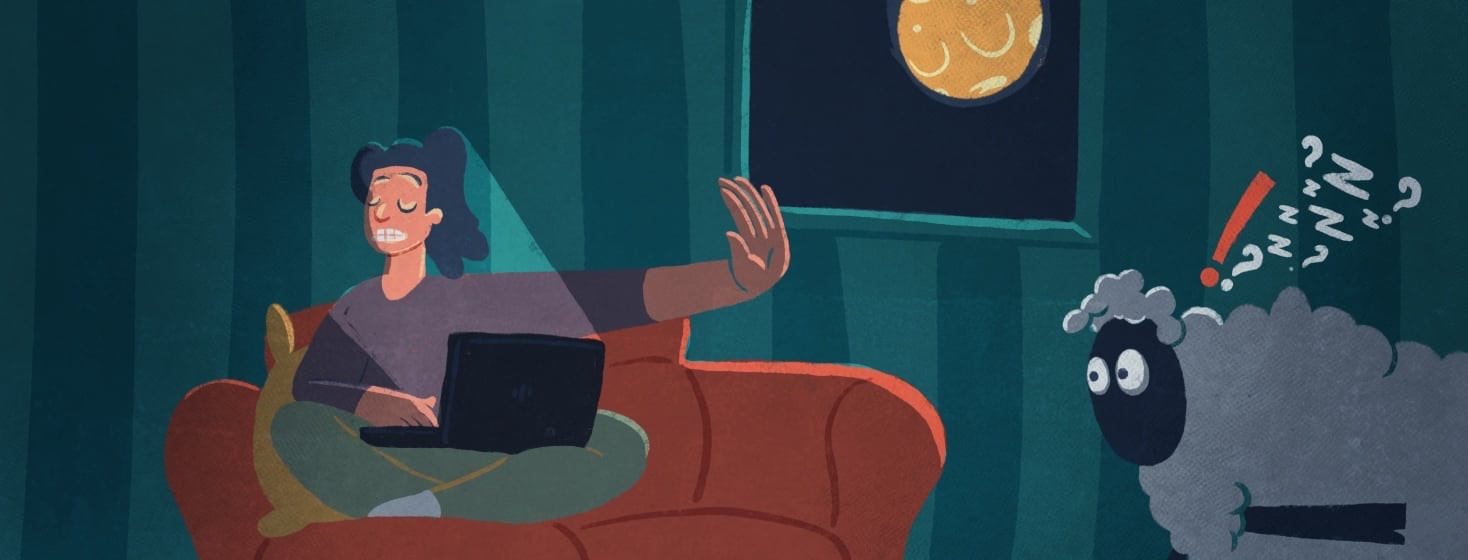Revenge Bedtime Procrastination
What is revenge bedtime procrastination? This phrase comes from the Chinese expression "bàofùxìng áoyè", which translates to "retaliatory staying up late." It is when "people who don’t have much control over their daytime life refuse to sleep early in order to regain some sense of freedom during late-night hours."1,3
What is revenge bedtime procrastination?
In other words, it is when you procrastinate going to bed so that you can get some "me time" that you could not get throughout the day.2
Who is doing it?
Many people do this without realizing it. People who are busy with responsibilities during the day often do it to have some personal time. This includes parents of young children, high school and post-secondary students, and people with long work hours or high-stress jobs.
Parents who spend all day caring for their kids might stay up later to get some time to themselves. Students who spend all day studying or people who work long shifts or have stressful jobs might stay up later to participate in leisure activities to reduce stress and tension.3
Some might go to bed later so they can watch TV, play video games, or read. Others may use this time to do some self-care or nothing at all. This time is meant to give people control over part of their day, in which they can choose how they spend their time, usually doing something that makes them happy.
Why is it so common?
Hustle culture, which values and encourages maximum productivity and effort at all times in order to succeed, is 1 of many reasons why it is so common. Not having time away from work pressures can cause stress, reduced well-being, and burnout.2
The idea behind revenge bedtime procrastination is that "there's more to life than..." work, school, being a parent, etc., and it's important and necessary to give time to hobbies, interests, and entertainment for personal enrichment and fulfillment.
However, chronic sleep deprivation causes many health problems. A chronic lack of sleep can cause drowsiness, depressed mood, and poor memory and concentration. It can also increase the risk of hypertension, diabetes, obesity, depression, anxiety, heart attack, and stroke.4
How it may cause or worsen insomnia?
Regular revenge bedtime procrastination can cause or worsen insomnia. It can lead to more sleep difficulties since it disrupts circadian rhythms, the natural, internal process of the sleep-wake cycle. While it may offer a reprieve from the monotonous and impersonal routines of daily life, regular revenge bedtime procrastination can have long-term effects on our health and well-being.4
How to change bedtime procrastination habits?
Sleep researchers and professionals emphasize the importance of 7 to 8 hours of sleep every night to boost mental and physical health. Their advice to combat revenge bedtime procrastination involves good sleep hygiene (reserving the bed for sleep, creating an encouraging environment for good sleep, not having caffeine past 2 PM, having a bedtime routine, etc.) and better time management.2,4
Has revenge bedtime procrastination affected your sleep?
Please share a comment below.

Join the conversation